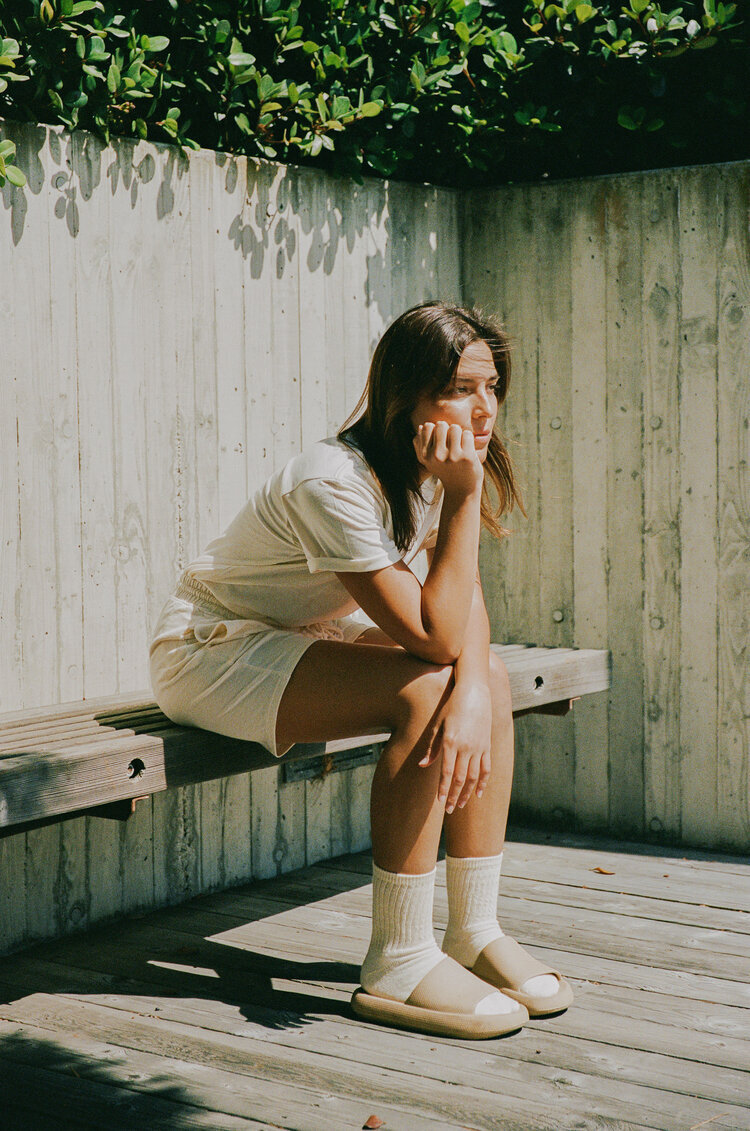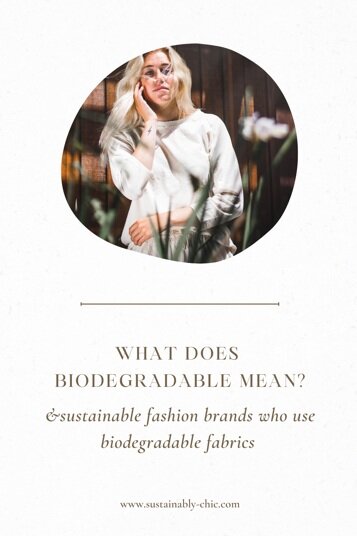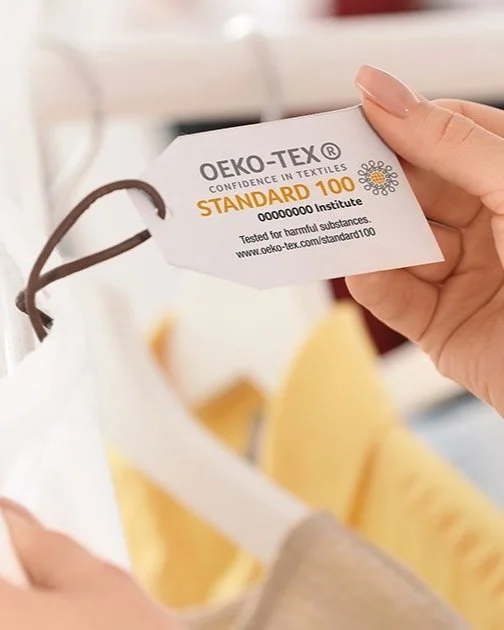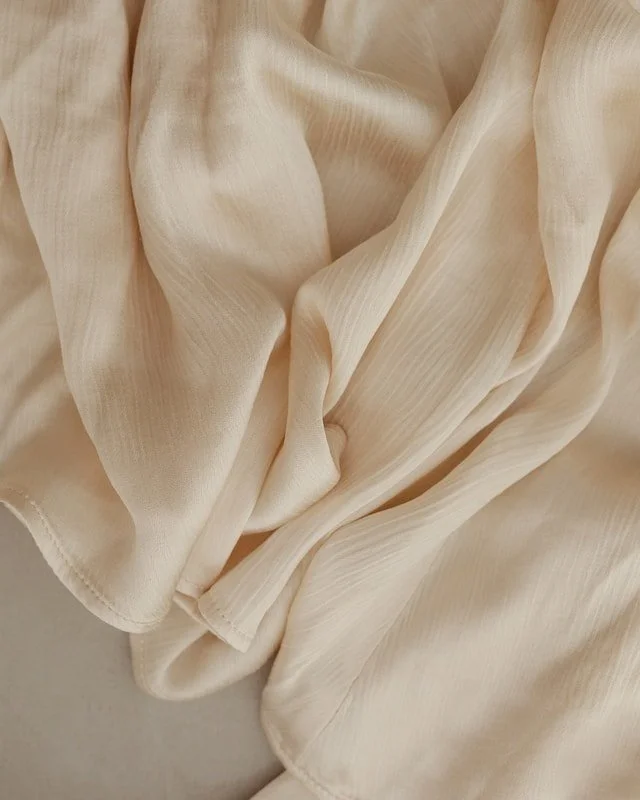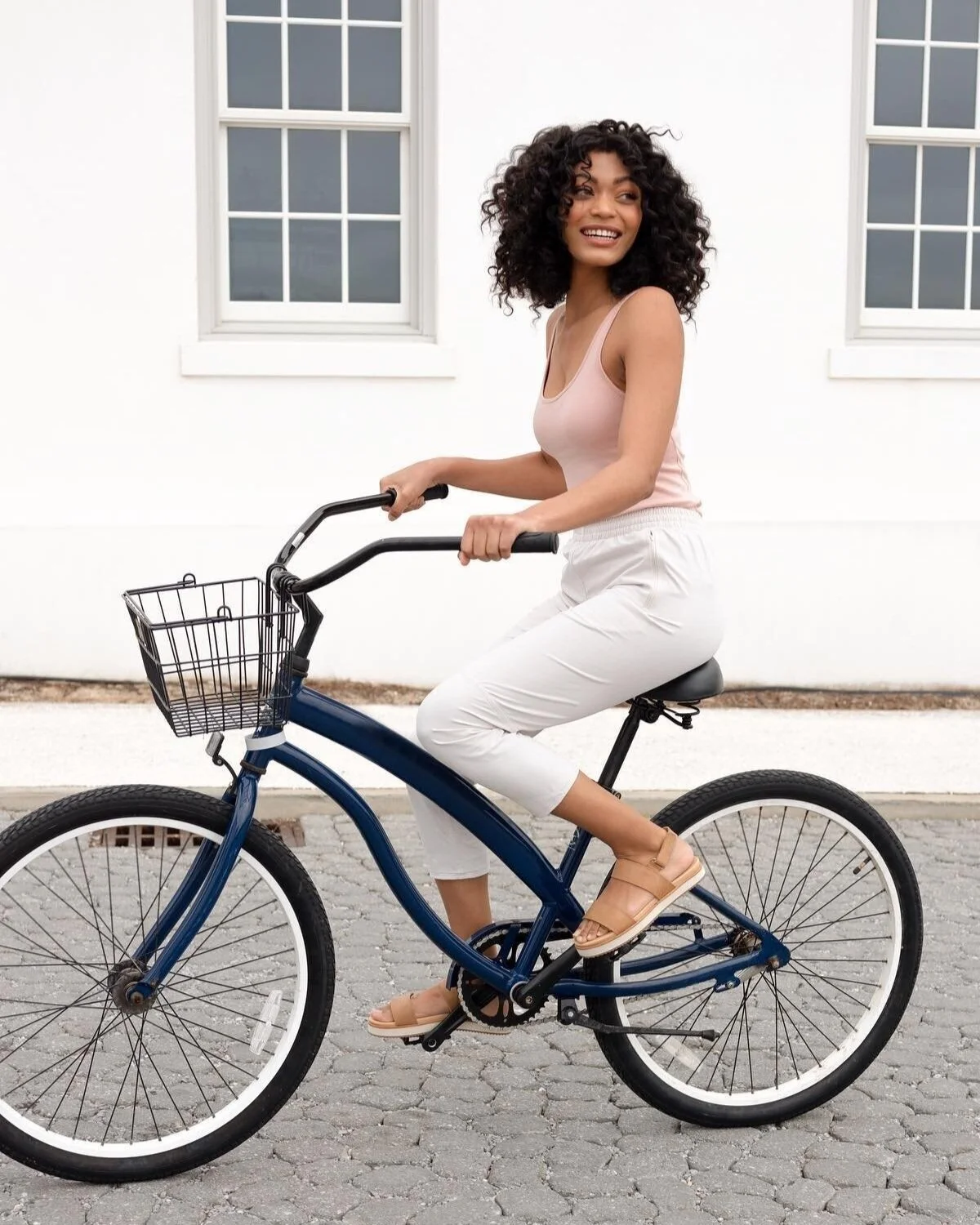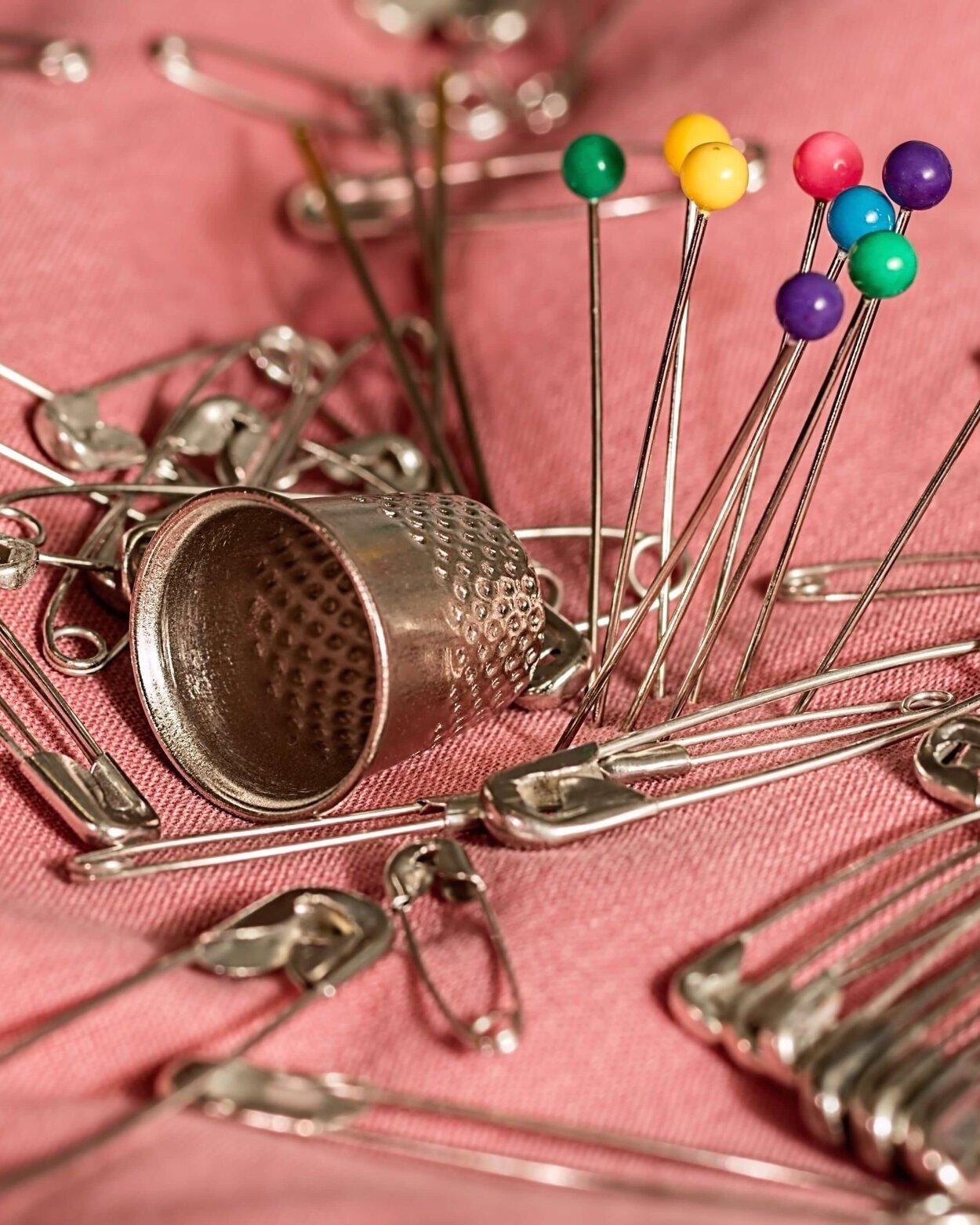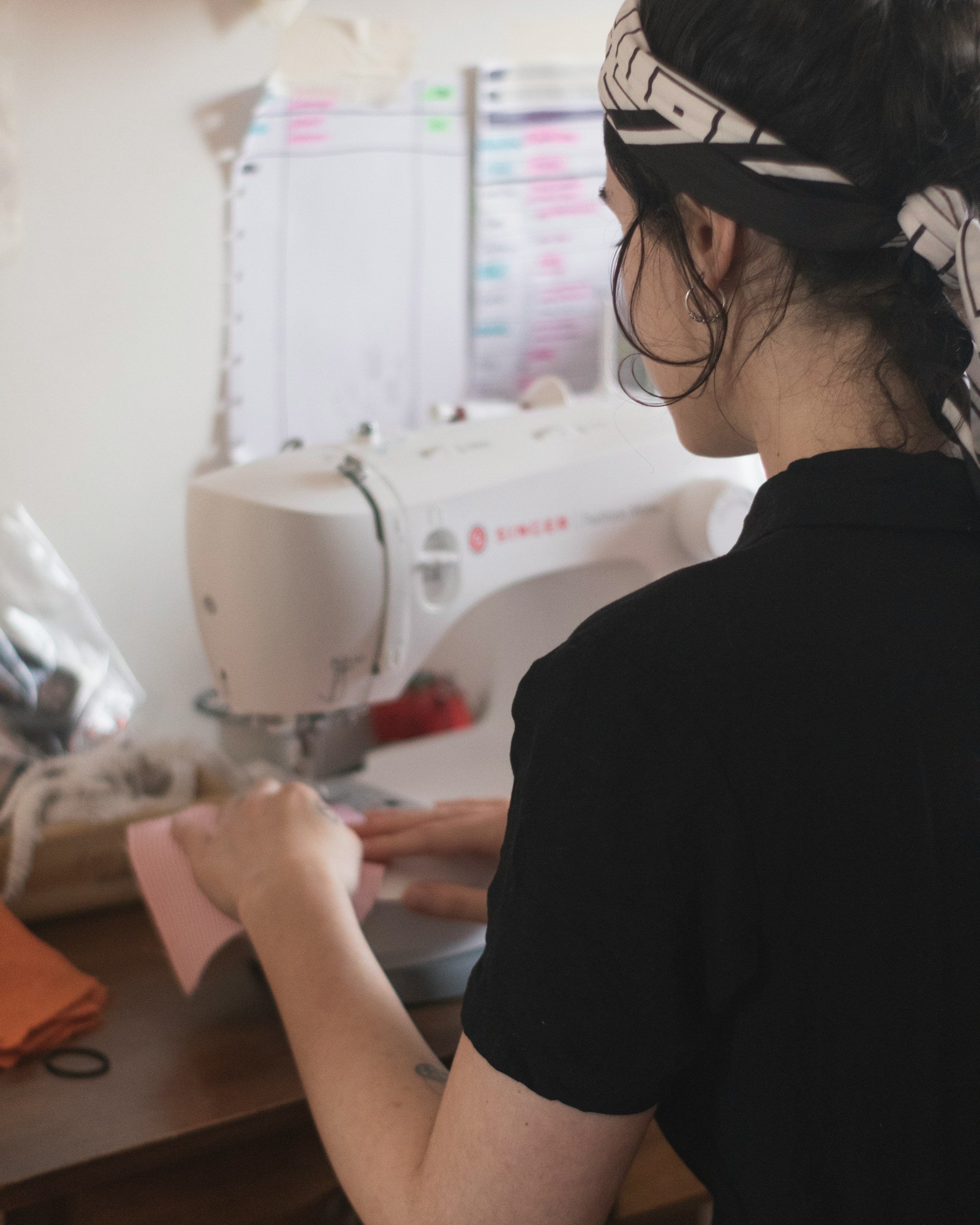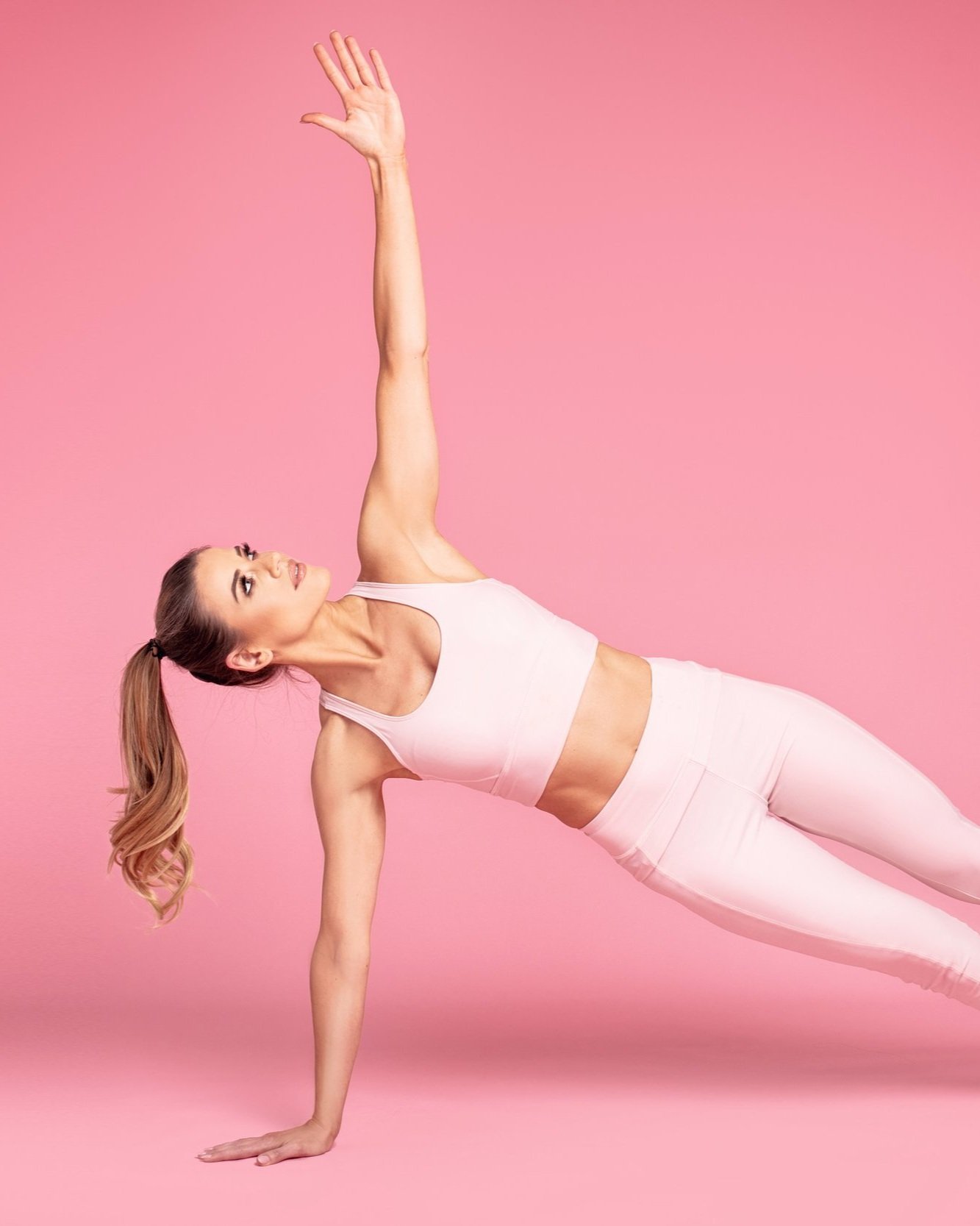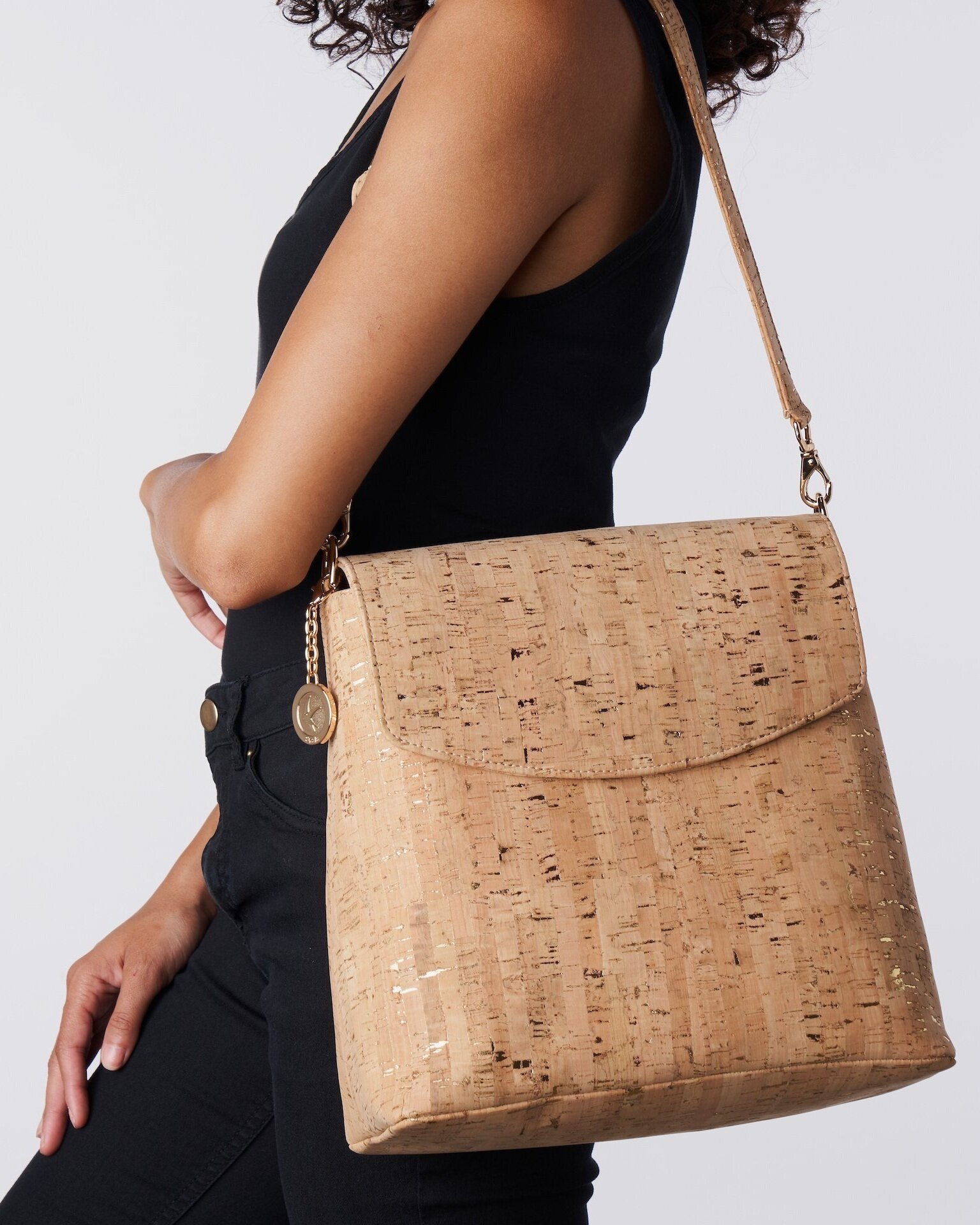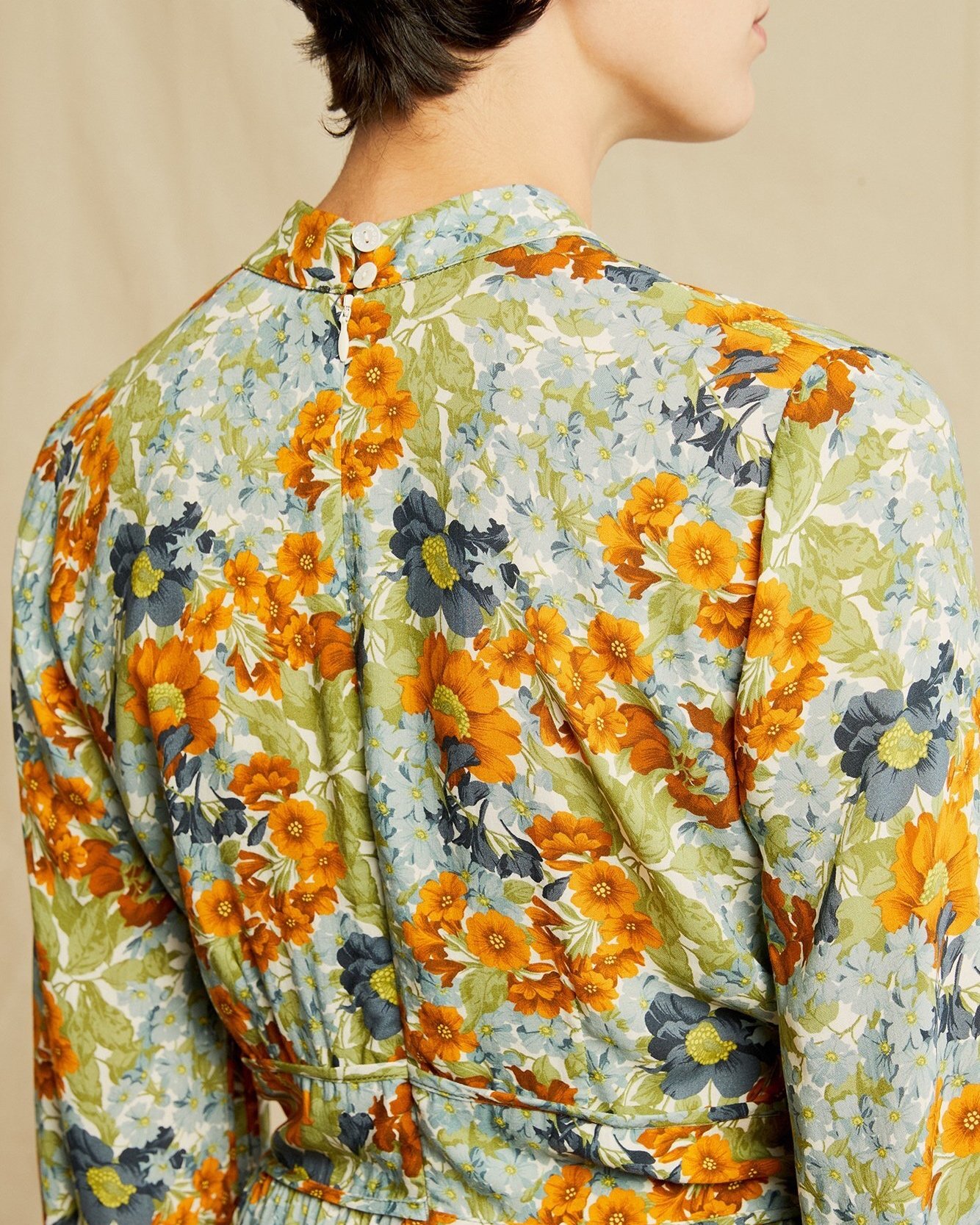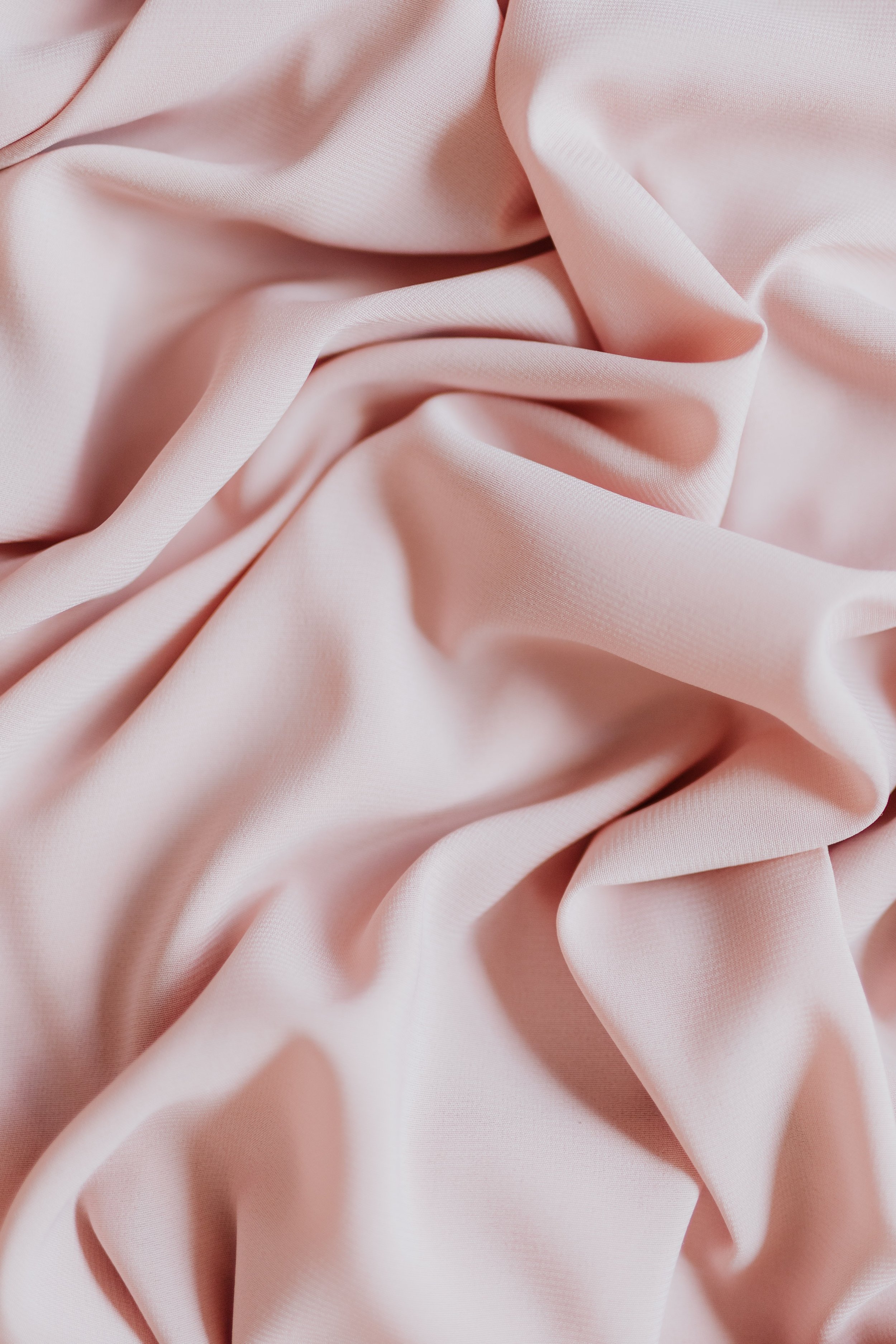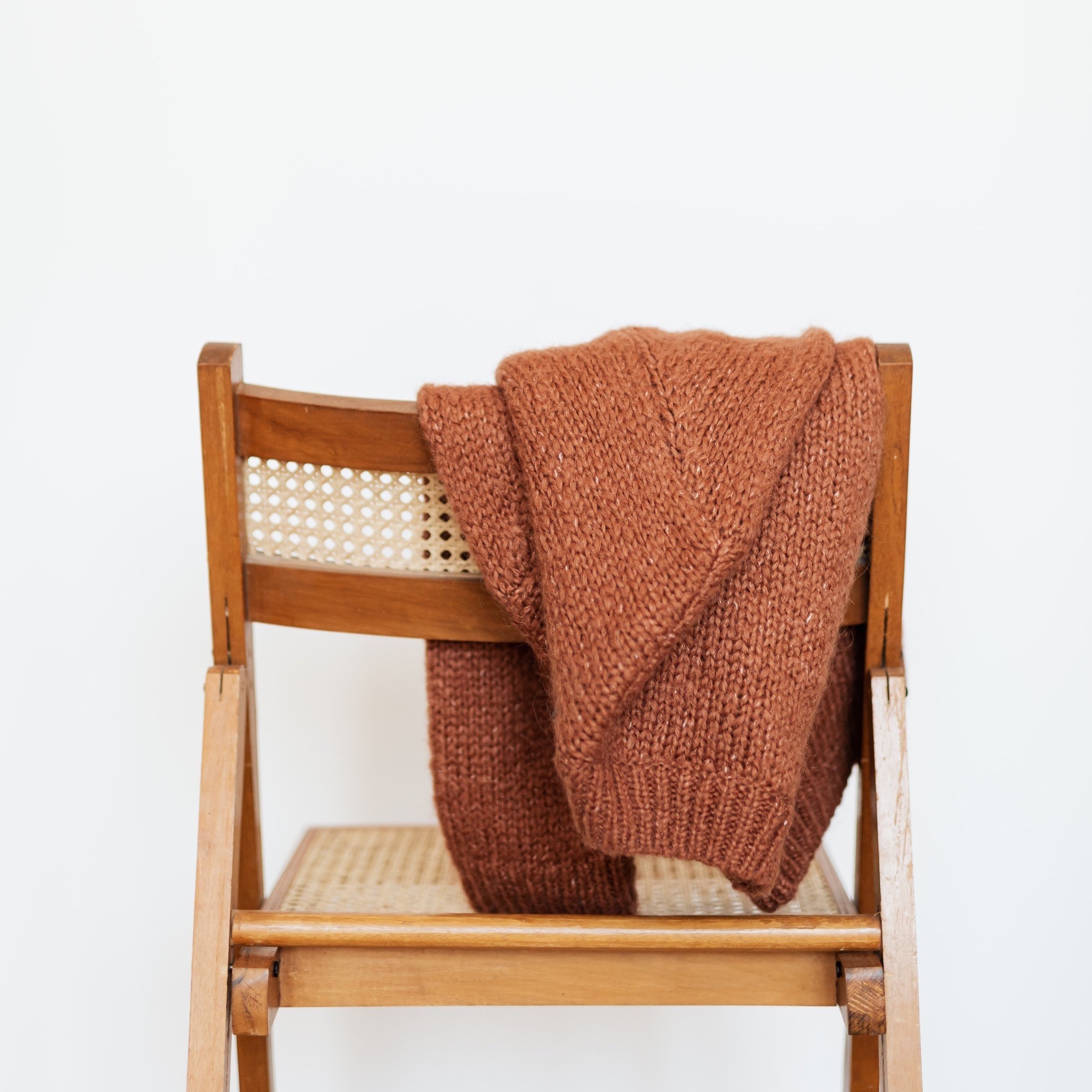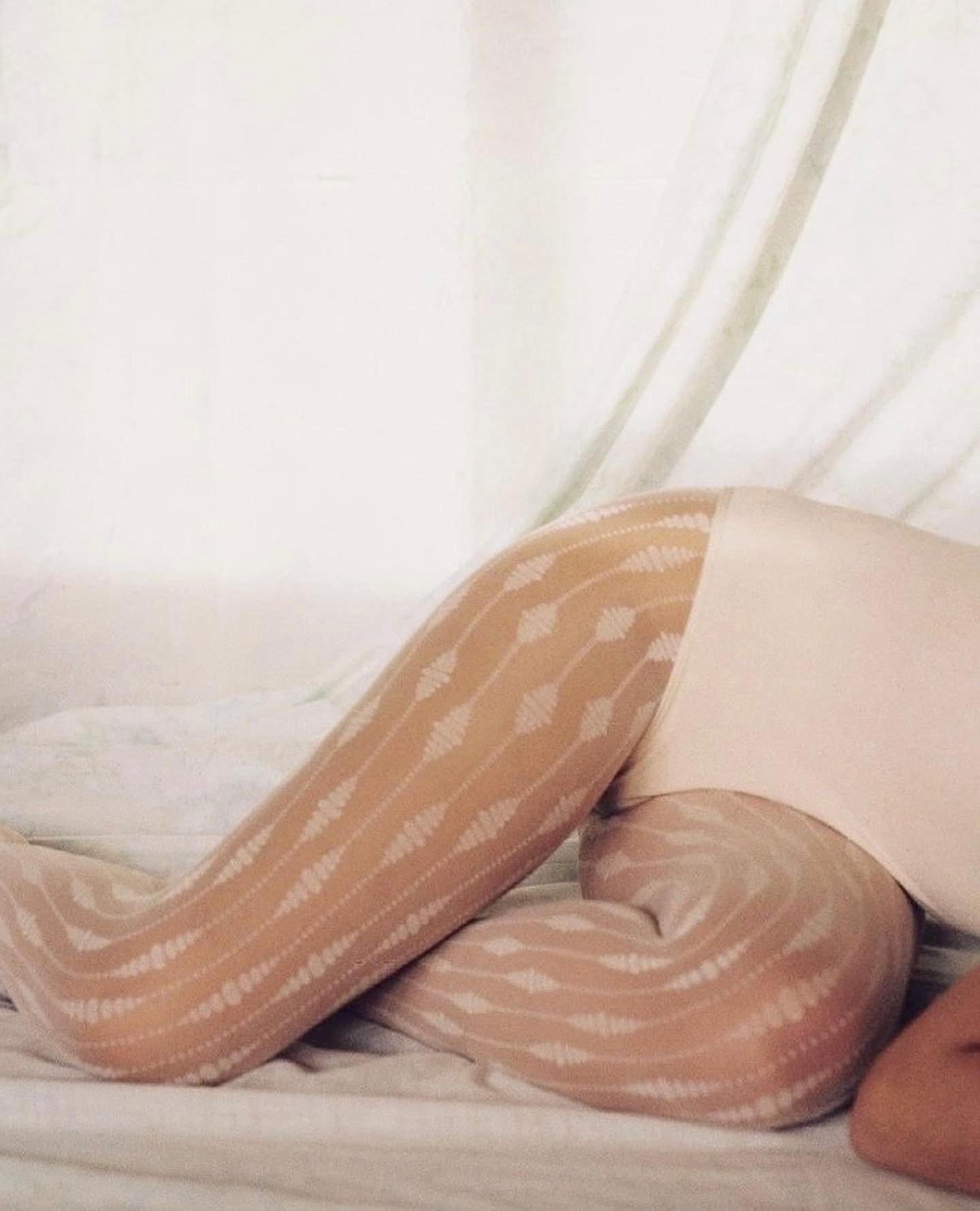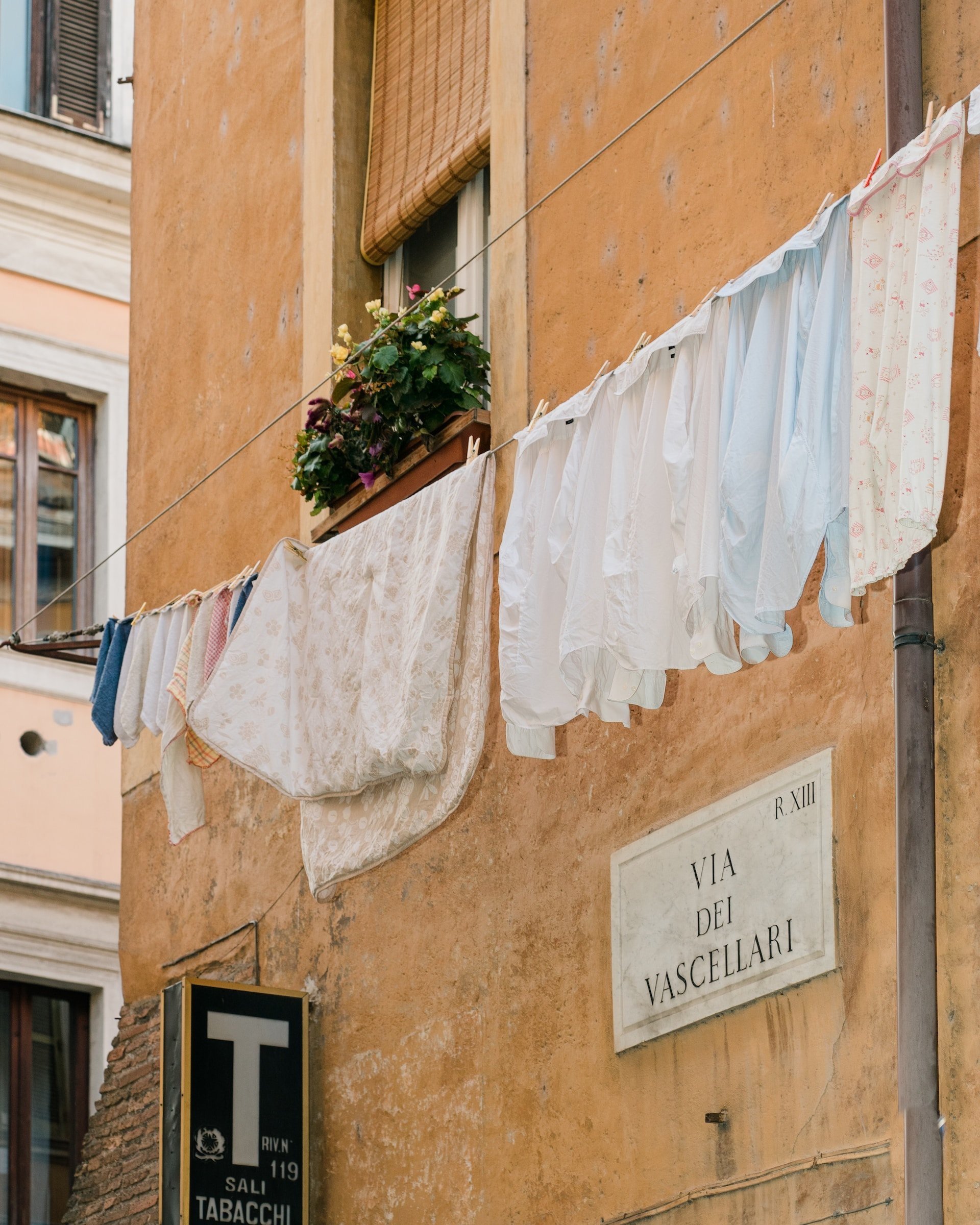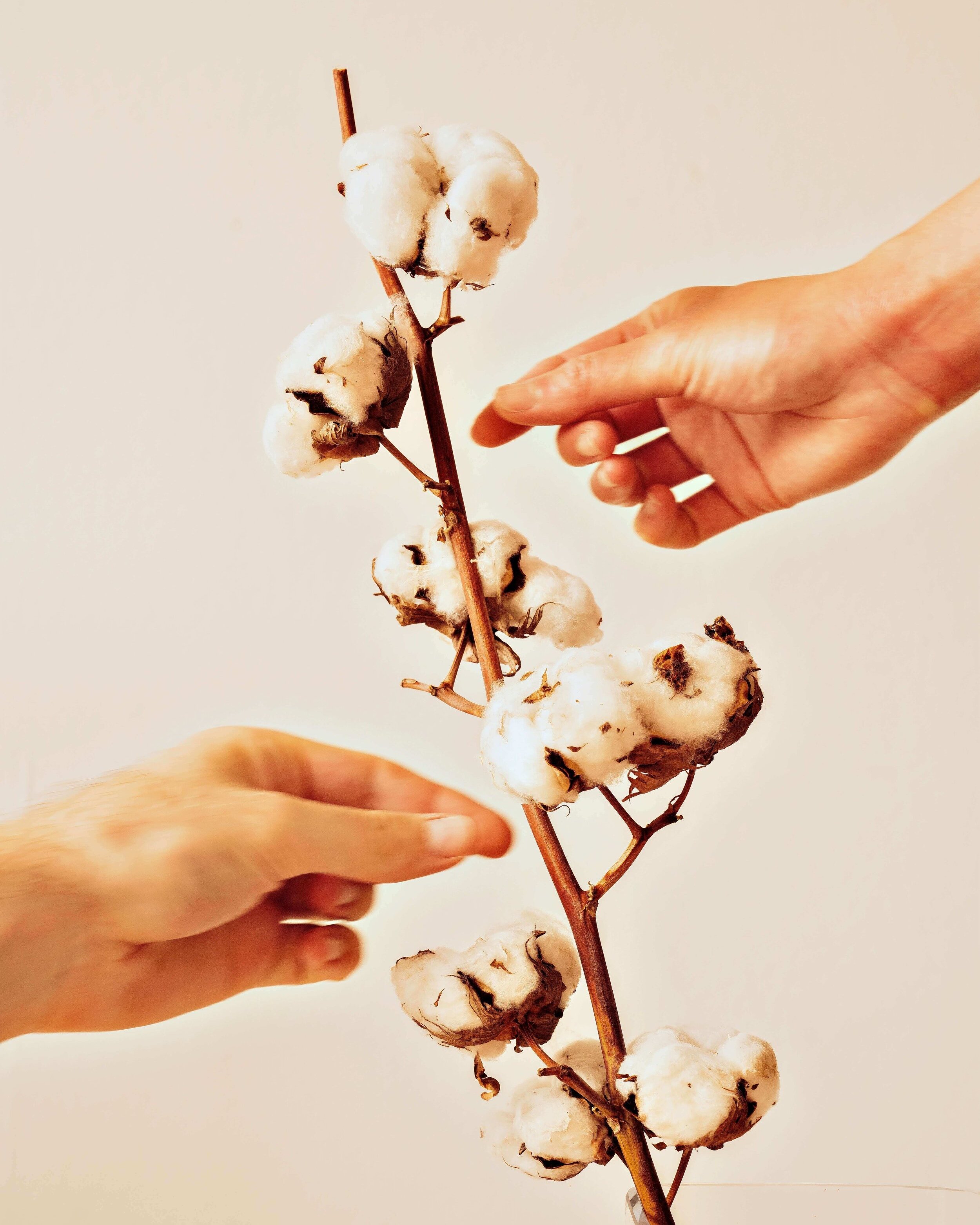What Does Biodegradable Mean? & Sustainable Fashion Brands Who Use Biodegradable Fabrics
Image from Harvest & Mill, a sustainable brand who creates biodegradable fashion
What Does Biodegradable Mean & Brands who Make Biodegradable clothing
With so many companies wanting to target the consumers interested in a greener way of living, there’s a lot of sustainable terms now being used as key buzzwords without any context. It is part of the greenwashing tactics that have become increasingly popular. If you’re not familiar with greenwashing, you can read more about it in this article. One of the terms being used more and more often is “biodegradable.” You might see this on plastic cutlery, laundry detergent, disposable dishes or body care products. So what does biodegradable actually mean? Keep reading to find out more!
What does biodegradable mean?
When something is biodegradable, it can break down naturally from the elements, bacteria, or living organisms in the surrounding soil. ASTM International, a global standards development organization, sets standards for testing and materials. In the United States, to qualify as biodegradable, 60% of the item must break down within 180 days by using a commercial compost facility. It seems simple, but don’t skip the last bit of that criteria by using a commercial compost facility. How many people have easy access to a commercial compost facility? Not very many, and even if they do, they might not know it’s necessary for proper disposal. This is why items and materials labeled “biodegradable” can be misleading to consumers, especially without proper disposal instructions. Consumers must be educated and understand the full process because when certain materials break down, they can leave behind microplastics, toxic chemicals, and even metal, which affects the environment. Biodegradable materials also need water and oxygen to break down properly. If the products are smothered and buried in heaps of trash without enough of these elements, they will give off methane gas during the decomposing process, which is a greenhouse gas contributor.
What should we do with biodegradable products?
Most products are not compostable because a home compost does not get hot enough. If sent to the landfill, they most likely won’t get enough water or air to decompose properly. Recycling these items also doesn’t work well because biodegradable plastics are not compatible with conventional plastic, so they contaminate the load and cause additional quality issues. The best way to deal with biodegradable products is to take them to the proper commercial compost facility. Some examples of biodegradable materials are cotton, hemp, cork, paper, wood, while materials like nylon and spandex are not. To find a commercial composting facility that processes biodegradable products near you, check out this website.
The difference between biodegradable and compostable
You might be wondering the difference between biodegradable and compostable because they sound like similar processes, and they are. However, compostable materials are organic matter, like food or yard waste, so they don’t leave behind any toxins and are much faster to decompose. Composted materials enrich the soil where they decompose and benefit the environment. While biodegradable items can be organic, they do not have to be and usually are not. They usually take years to decompose and often leave traces of pollutants, which are harmful to the environment. To put it simply, all compostable material is biodegradable, but not all biodegradable material is compostable. If you want to read more about composting, check out my other article, “What is Compostable” for more information.
Biodegradable fashion
With the ability to use natural materials and fabrics, the biodegradable fashion industry can’t stop there. It is also important that the dyes and pigments used are biodegradable so that when the fibers are breaking down into the environment, they are non-toxic and not polluting the soil. Natural dyes can be made from vegetables, seeds, roots and other plant-derivatives instead of the typical petrochemicals used in the synthetic dye process.
Biodegradable Clothing Brands
Here are some clothing brands that offer truly biodegradable clothing and fully encompass the sustainable values and practices..
The Very Good Bra
A zero-waste basics company which offers inclusive sizing, 100% botanically-sourced materials, and even replacement straps for their bras to lengthen the life of their best-selling product.
Danu Organic
Using only 100% organic fabric, Danu offers unisex clothing for your everyday life. They are fully transparent with their sourcing, manufacturing and are a circular company.
Sustain
Styles for almost any occasion, Sustain embodies fully sustainable values and their fabrics and dyes actually benefit your body as you wear their clothes, instead of distributing toxins. You can also see Sustain featured in this Sustainably Chic post.
Harvest and Mill
Organic clothing made using natural color and organic heirloom cottons that are either entirely dye-free, non-toxic dye or natural dyes.
Agaati
For when you’re ready to get dressed up or slip into something outside your typical everyday outfit, Agaati has beautiful styles for any social event. Agaati uses non-toxic dyes and natural materials for their collections. Read more about this company on this Sustainably Chic brand feature post!
Perspective Fitwear
Performance apparel with a purpose so that your fitness wear works as hard as you do! Perspective Fitwear features Good Human Tech fabric which is landfill-degradable technology, provides SPF 50+ protection, sweat-wicking, fast-drying, antimicrobial, odor-controlling, and feels buttery smooth on the skin. Perspective Fitwear is a Sustainably Chic favorite, showcased in this outfit post.
Bio-Nylon Technology
Bio-nylon is a synthetically made fiber created from renewable resources like castor oil, making it a sustainable version of a very desirable and popular textile. The best part is bio-nylon is also biodegradable making it a much more eco-friendly option than the typical petroleum-based nylon. The two largest sources of micro-plastic pollution in the ocean are from synthetic fibers polluting water during washing and synthetic nylon fishing nets. Think of the impact on our environment if bio-nylon is regularly used in clothing and fishing nets instead? You can find brands who use bio-nylon at the end of this post here.
Instead of purchasing items simply because they are biodegradable, check to be sure they will be able to be broken down properly. If you don’t have proper facilities for biodegradable products near you, look for easily recyclable materials or low-waste alternatives. For example, glass is not biodegradable but is easily recycled and durable for repeated use and recycling. Popular biodegradable products you see created and marketed for the eco-conscious consumer are disposable cups, dishes, cutlery, toothbrushes, straws, and packaging materials. All of these items have reusable or recyclable options that will be easier to dispose of or repurpose properly. However, when thinking long term, biodegradable products are the future of textiles. With approximately 10 million tons of clothing sent to landfills each year, incorporating fully biodegradable materials into our everyday use will dramatically reduce our environmental impact, which is a change we would love to see!
About the Contributor
Karmen Flores is a creative entrepreneur based in Michigan. Karmen shares all about plant-based and sustainable, intentional living on her blog Karmen Collective. From recommendations for all things plant-based to tips for living more sustainably, Karmen makes living with intention less intimidating and more accessible. You can connect with Karmen on Instagram @karmencollective and at www.karmencollective.com.
PIN THE PHOTO TO SAVE THIS POST FOR LATER
We are constantly updating blog posts to give you the best in sustainable fashion, beauty and lifestyle.
LOOKING FOR SUSTAINABLE BRANDS?
Our Brand Directory is home to hundreds of sustainable brands, from makeup to cleaning supplies, from underwear to shoes.
We have broken everything down by category for easy shopping, along with discount codes unique to SC viewers.

